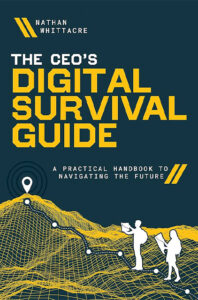In the ever-evolving landscape of business, the qualities that define a successful leader have transformed through the years. As we move along toward 2025, the best leaders must possess a unique blend of adaptability, empathy, and technological savviness to navigate the complex challenges and opportunities that lie ahead.
1. Adaptability
The Ability to Navigate Change with Agility
The pace of change in today’s business environment is unprecedented. From technological advancements to shifting market dynamics, leaders must be adaptable to stay ahead. Adaptability involves not just reacting to change but proactively anticipating and preparing for it. According to a study by McKinsey1, businesses that foster adaptability are more likely to thrive during times of disruption. Leaders who can pivot strategies, embrace new business models, and drive innovation will lead their organizations to sustained success.
Adaptability also means fostering a culture of continuous learning within the organization. Encouraging employees to develop new skills and stay updated with industry trends ensures that the entire team is prepared for future challenges. The most successful leaders will be those who can seamlessly integrate adaptability into their leadership style, making it a core aspect of their business strategy.
2. Empathy
A Blueprint for Building Strong, Inclusive Teams
Empathy has emerged as a critical leadership quality in recent years. In today’s business environment, it remains indispensable. Empathetic leaders understand the needs, emotions, and perspectives of their employees, creating a more inclusive and supportive work environment. This not only enhances employee satisfaction and retention but also drives productivity and innovation.
Research from the Harvard Business Review2 highlights that empathetic leaders are better at managing teams, fostering collaboration, and resolving conflicts. In an era where mental health and well-being are prioritized, leaders who demonstrate genuine care for their employees’ well-being can build stronger, more resilient teams. Empathy also extends to understanding customers, leading to better products and services that truly meet market needs.
3. Technological Savviness
Leveraging Digital Tools for Productive Growth
The digital revolution continues to re-shape the business landscape, and leaders must be technologically savvy to harness its full potential. This doesn’t mean they need to be tech experts but rather have a strong understanding of how technology can drive business growth. Leaders must stay informed about emerging technologies such as artificial intelligence, blockchain, and data analytics, and know how to integrate these into their overall business strategies.
A report by Deloitte3 underscores the importance of digital leadership, noting that companies led by tech-savvy leaders are more likely to innovate and outperform their peers. In the years ahead, leveraging digital tools for operational efficiency, customer engagement, and data-driven decision-making will be crucial. Leaders who can effectively navigate the digital landscape will position their organizations for long-term success.
Generally speaking, the best leaders will be those who are flexible, resilient, compassionate, and digitally savvy. These important emerging qualities will enable them to navigate the complexities of the modern business environment, foster strong teams, and drive both innovation and growth. As the business world continues to evolve, leaders with these traits will be at the forefront, steering their organizations towards a prosperous future.
Popular Book Summaries about Adaptability, Empathy, and Tech-Savviness:
Sources:
1. McKinsey & Company: “The Need for Speed in the Post-COVID-19 Era”
2. Harvard Business Review: “The Empathy Deficit”
3. Deloitte: “Digital Leadership: Elevating the Future of Business”







